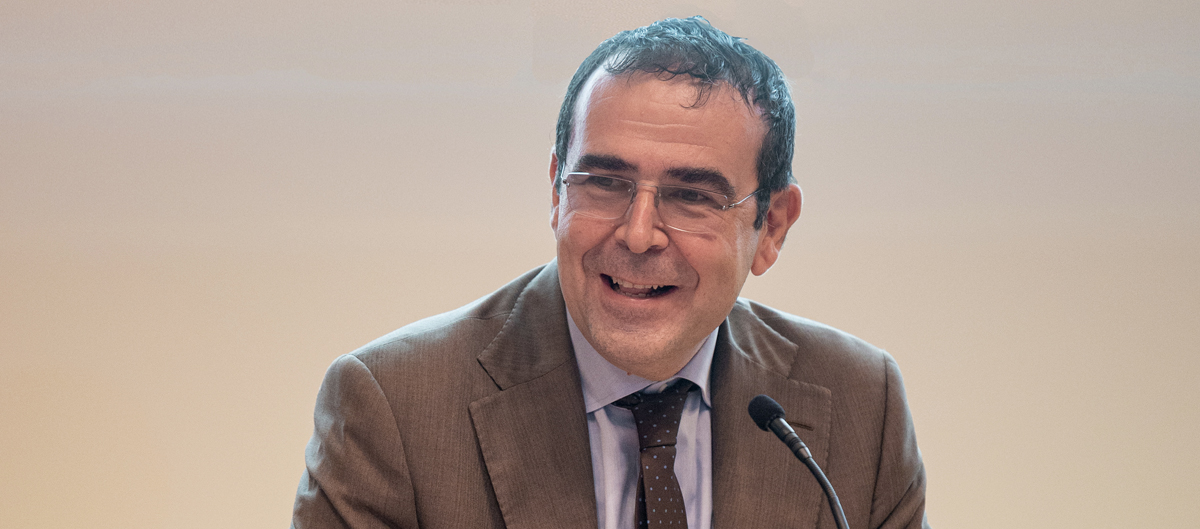
From the customer to the human being: journey to the center of H2H Marketing
7 March 2022An online event with the participation of SAMA is an opportunity to speak with Fabio Ancarani, Professor of Marketing at the University of Bologna and Director of the Executive Master in Sales and Marketing at Bologna Business School.
BBS Meets Sama: How to Build a Customer-Centric Culture in your Organizations is the title of the webinar organized by Bologna Business School and SAMA to take stock of the need to innovate the culture of organizations in order to face the rapid changes of the global market. Thanks to the interventions of Alessio Arcando, Adjunct Professor and Executive Director of the Key Account Management Program at BBS, Dominique Côté, CEO and Founder of Cosawi and member of the Board of Directors of SAMA and Denise Freier, CEO and President of SAMA, it was possible to contextualize the post-pandemic scenario. New-normal is indeed an overused term, but it’s a fact that the world we find ourselves living in today is not the same as the one we were used to living in just two years ago. The role of Strategic Account Management is to acknowledge the changing marketplace and lead customers to manage it through skills and approaches that can become real competitive advantages. Among these, the ability to put human beings at the center stands out, which implies a new way of training resources, leading them to acquire those skills that are now essential to live and operate in this scenario, such as the ability to manage new digital technologies, to think outside the box to get to innovative solutions, to be flexible and open to change, without forgetting the soft skills needed to collaborate in increasingly inclusive contexts.
When we talk about putting the human being at the center, however, the question becomes even broader and begins to involve the great revolution of contemporary marketing: the transition from the centrality of the customer to that of the human being, with its instances, now intrinsically linked to values such as sustainability and social responsibility. Philip Kotler, guru of contemporary marketing, describes it in his book H2H Marketing. Human to Human Marketing, written with the assistance of the Germans Waldemar Pfoerstch and Uwe Sponholtz. Fabio Ancarani, Director of the Executive Master in Sales and Marketing at BBS, edited the Italian edition of the book (Piccin Editore), writing an interesting preface in which he explains how we have moved from the rigid distinction between B2B and B2C (passing through B2B2C and BTP) to a Human to Human marketing, which looks at the customer as a person. Indeed, whether it’s an end customer or an industrial buyer, the human being behind the definition “customer” remains an individual with values of their own, who is looking for companies that can understand and fulfill them through a mix of products and services. “Human marketing to make marketing more human, in an era where technology is automating it more and more,” Ancarani explains.
How is it possible, however, to implement in real marketing, but also in sales, this new way of seeing things? For one thing, by overcoming the limitations of marketing. “One must always be prepared to rethink what one thinks and does in marketing,” Kotler writes. A sector for which the perception is often negative, so much so that the reputation of marketing-related activities, again according to Kotler, is decidedly “not good, especially in B2B.” In the post-pandemic world, Ancarani explains, marketing can and must play a key role, but it must overcome these prejudices, evolving toward a vision whereby companies sell to human beings through human beings.
A marketing in which, however, technology cannot and must not be left behind. As a matter of fact, the H2H approach does not aim at doing without or bypassing it; on the contrary, one of its pillars is an ever greater integration between everything that is digital and technological and everything that is human, therefore physical. The Human to Human approach, which involves human beings interacting with human beings, also complements and surpasses solution, experience and emotion marketing because it no longer aims to sell the consumer/customer its humanity. Today, marketing aims to evolve from product to service to platform, via sustainability and social responsibility, in the wake of the post-pandemic wave that should amplify these aspects.
The centrality of the person who brings their values and seeks to share them, and the increasingly clear need, for the customer as well as for companies, for a complementary construction of values: these are the elements that define the broader aspect of H2H Marketing and that require for the corporate world an extended and innovative value proposition, the wise combination of products and services with the ultimate goal of fulfilling the sought-after benefits. In this, the Human to Human approach goes beyond the previous theoretical models by bringing together the components of the exchange.
A more human marketing, aimed at the benefit of all individuals, in a chain of shared values and mutual trust, contributes to improving marketing, returning it to its role as a leading business function, especially when it integrates technology in a conscious way and embraces key issues such as sustainability and social responsibility.
